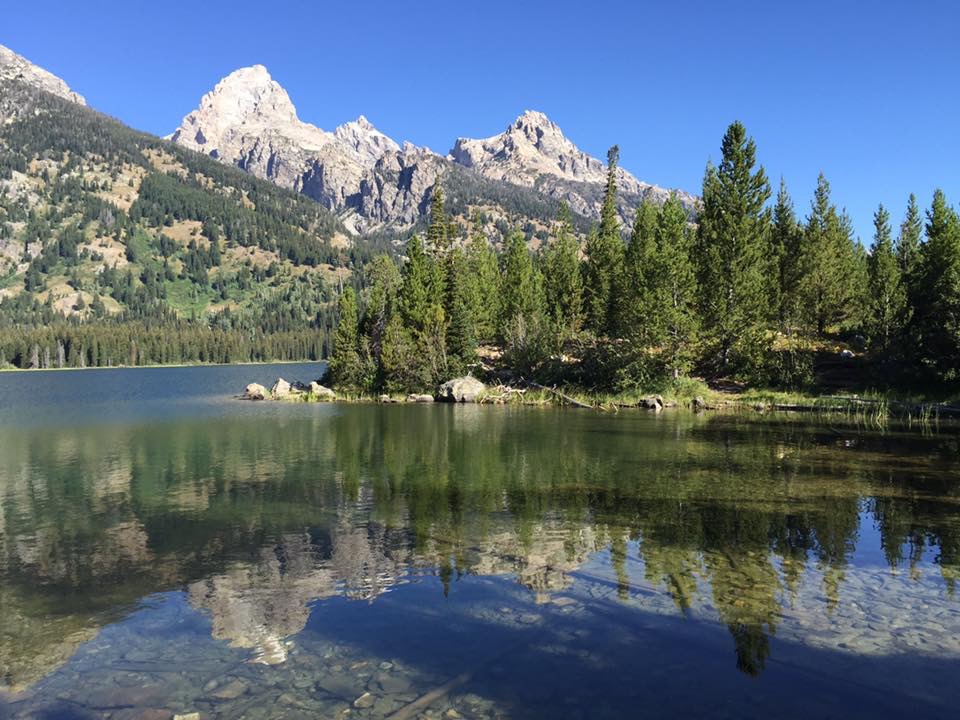If you love snakes, spiders, alligators, crocodiles and birds (and who doesn’t?!!), then Reptile Gardens, located just South of Rapid City, is a perfect place to spend an afternoon.
According to the Guinness Book of World Records, Reptile Gardens has more species and sub-species of reptiles than any other zoo or park in the world. They offer several informative programs every day, on snakes, birds and a popular alligator/crocodile show. One of the more popular residents of Reptile Gardens is the giant tortoise. There are two species, Galapagos (which is endangered) and Aldabra (which is a threatened species). They average 500 pounds in weight, and 4 to 5 1/2 feet depending on the species. They are very gentle creatures, and it was fun getting to pet them.
These little ones seemed to be having some fun!
The Sky Dome contains a tropical jungle with birds, lizards, and small turtles roaming around. It also has a beautiful display of tropical plants and flowers.
They have several different species of Amazon and Macaw birds on display, that seemed quite happy with their surroundings, and were oblivious to us humans.
The Alligator/Crocodile show is very popular, and educational as well. The handler discusses the difference between the two species, and will show you how to wrangle them, if you so desire!
During the show, the handler comes out with a bucket of raw chicken legs, which they seem to enjoy and swallow whole.
At the end of the show, the handler goes around with Fluffy, their baby crocodile. Who can resist petting her?
They do have an exhibit of a Komodo Dragon, which is the largest lizard in the world. Males can reach up to 10 feet long. The Dragons will eat snakes, pigs and pesky tourists, according to the sign at the display.
But the highlight of Reptile Gardens is their impressive display of snakes. What is the worlds most deadliest snake? According to Reptile Gardens, it is the Inland Taipan, as it has the most toxic venom of any snake known on the planet. However, because of its limited range of living in remote Australia, there are no known deaths from this snake. This snake was hiding out in the back of the display, so I was unable to get a good picture of it.
The Rough-Scaled Python, is considered to be the rarest snake in the world. It is non-venomous. The species were first found in 1976, but a second one was not located until 1983. They were found in Northern Australia, and Reptile Gardens was the first place to have, and to breed them, outside of Australia. They live in sandstone crevices and usually come out after dark to warm up on heat stored in the rocks.
The Boomslang, found in Tropical Africa south of the Sahara, is the most venomous rear-fanged snake in the world. The snake is able to open its mouth a full 180 degrees, to display its potent fangs.
The Black Mamba, found in Central and South Africa, is the second longest venomous snake in the world, growing up to 14 feet in length. If left untreated, 100% of Black Mamba snake bites are fatal. Just 2 drops of their venom is lethal, and a bite will usually deposit 15 drops. This snake just shed it’s skin, which was left in the cage on the left. The snake is sprawled out on the right side.
The Australian Scrub Python, a non-venomous snake, is the largest species native to Australia. They can get up to 28 feet, although 16 feet is the norm. There are two snakes in the photo below, all wrapped up together. They are the only 2 in the United States.
The Anaconda, a non-venomous snake, is the largest, heaviest and second longest snake in existence. (the longest snake is the Reticulated Python) They can weigh up to 300 pounds, and grow 22 feet in length. The females have been known to eat smaller males!
The very large, non-venomous Burmese Python can lay up to 100 six-inch eggs. They are unusual in the reptile world in that they will incubate their eggs by coiling up around them, and raising their body temperature about 7 degrees.
This is the skeleton of a Burmese Python, which contains 328 pairs of ribs and 400 vertebrae. It is estimated this snake weighed 150 pounds and was 19 feet in length.
The cost for Reptile Gardens is $16.50, which includes a pass allowing you to return all season.
Quote of the day: “Do not insult the crocodile until you have crossed the river.” – Chinese Proverb



















I liked seeing the birds flowers and gators….not the snakes so much :-).
the snakes just lay around all day, pretty harmless! (since they are all behind glass!)
Did you get in free with your VIP pass?!!!
Next time you’re in Florida, you need to go to Gatorland!
I guess I mention the VIP pass too much!!! Is Gatorland by Orlando?